Beverage consumers are demanding ever-greater sustainability in their drinks. That comes with a financial cost. How can producers earn more to cover these new costs? In this webinar, hear from the founders of a range of Kiwi beverage brands that are successfully winning the ‘green premium’, and re-investing that premium in sustainable production.
Featuring:
- Patsy Bass, Reefton Distilling Co
- Florence van Dyke, Chia Sisters / NZTE
- Simon Coley, Karma Drinks / All Good Organics
- Prof Paul Dalziel, Agribusiness & Economic Research Unit
- Vincent Heeringa, MC
It's probably not surprising that we have more success on the very visible occasions that people consume products like our drinks, in cafes and restaurants, because there is something to do with virtue signalling around what we're associated with.
Simon Coley, co-founder of Karma Drinks and All Good Organics
Watch the webinar for some interesting observations about where consumers might be more likely to consume products with sustainability credentials, and some valuable discussion about scale. “I mean, people ask sometimes, oh, what would you do if another distillery starts on the West Coast? And I say, Well, I hope we get ten. It hasn't hurt Scotland,” said Patsy Bass, founder of Reefton Distilling Co.
A great example of winning the green premium in the beverage sector from Florence Van Dyke, co-founder of successful Nelson drinks company Chia Sisters and the first head of sustainability for New Zealand Trade and Enterprise:
“Our big values are innovation, nutrition and sustainability, and we made a decision from the outset of our business that every time we were going through a major business decision, those three values would have a seat at the table. One example of that is when we shifted into our own factory. We went from having a contract manufacturer to making the products ourselves. And we decided when we did that to line the new factory with solar panels, and that was quite expensive. But when we did that, we launched a new range called Bottled by the Sun to celebrate that shift to solar power. And the profit from that range far, far outweighed the cost of the solar panels. So it’s a good example of being more ethical, providing more profits at the end of the day.”
This webinar was a partnership between The Value Project and NZTE, held on Tuesday 21 February, 9–10am. Watch the red meat sector webinar here, and the horticulture sector webinar here.
- For in-depth case studies visit, The Value Project website
- For academic outputs and context for this work, the Rewarding Sustainable Practices research page
- For support from NZTE, the Made With Care platform
- A range of additional resources related to increasing value
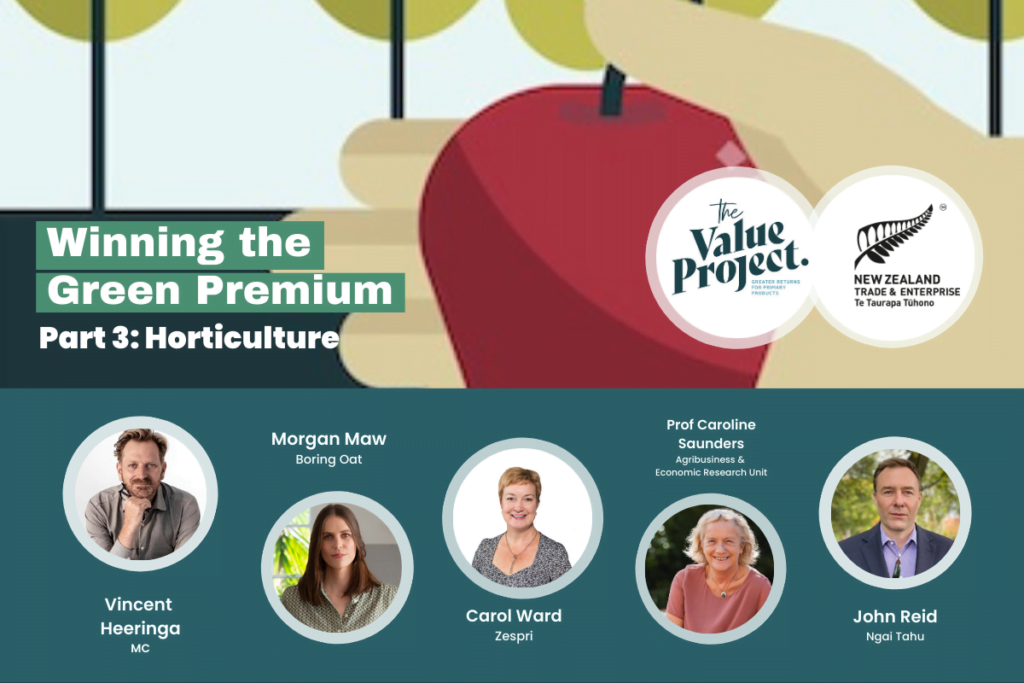
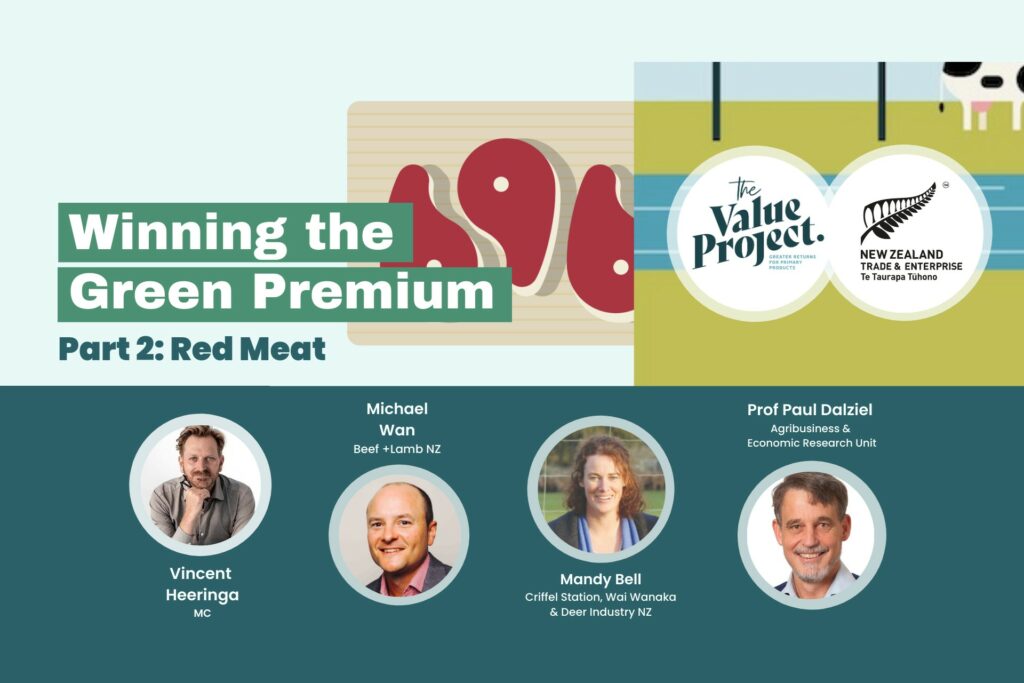
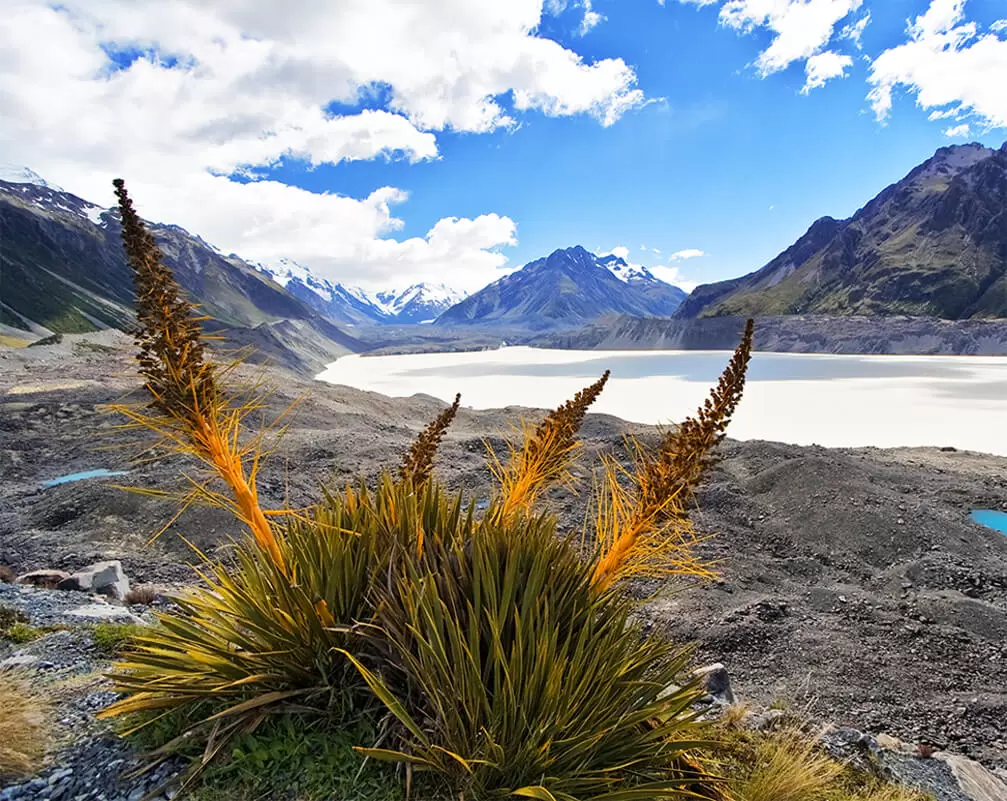
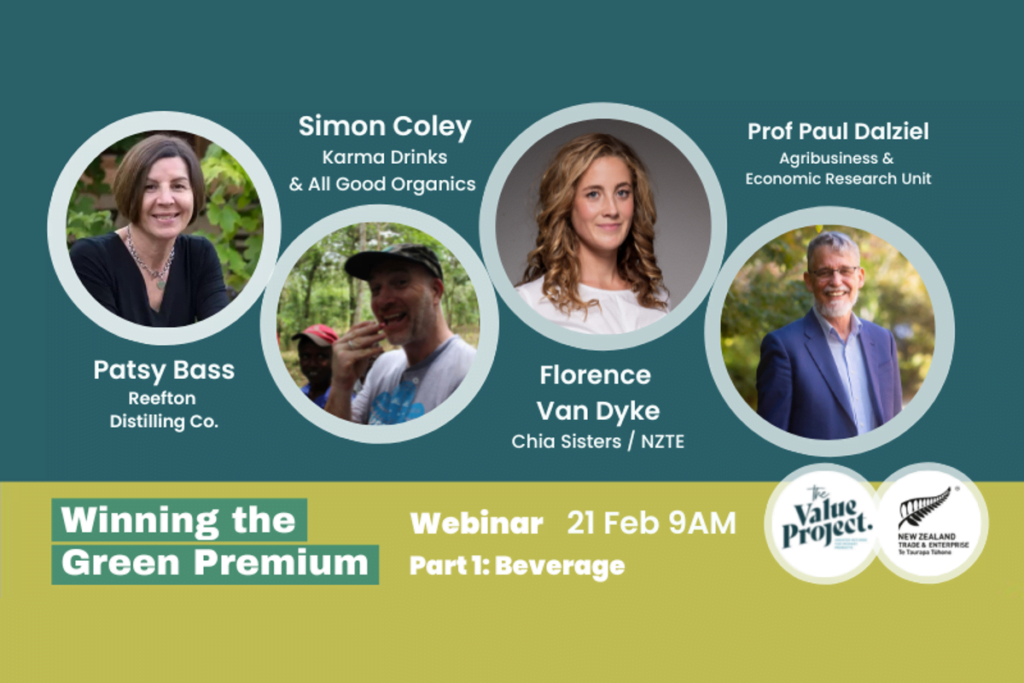
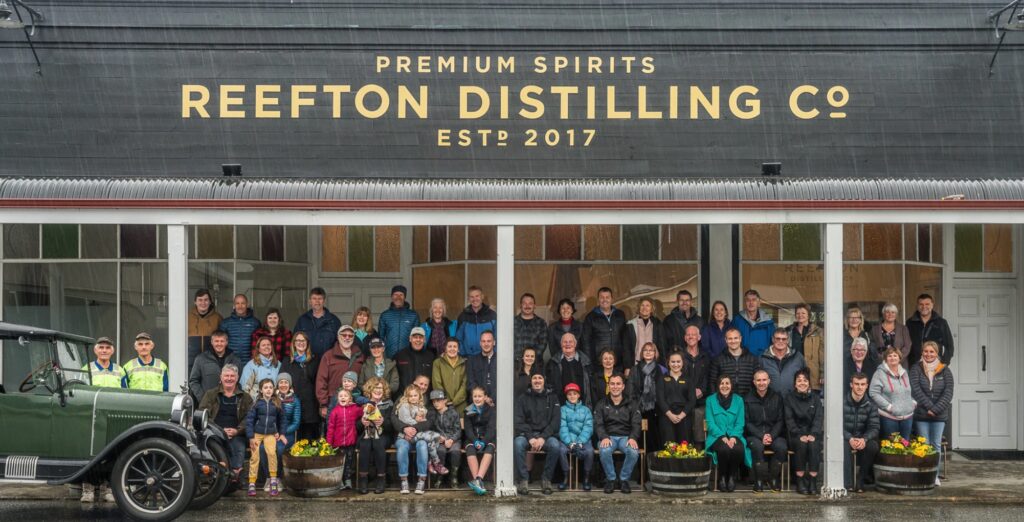
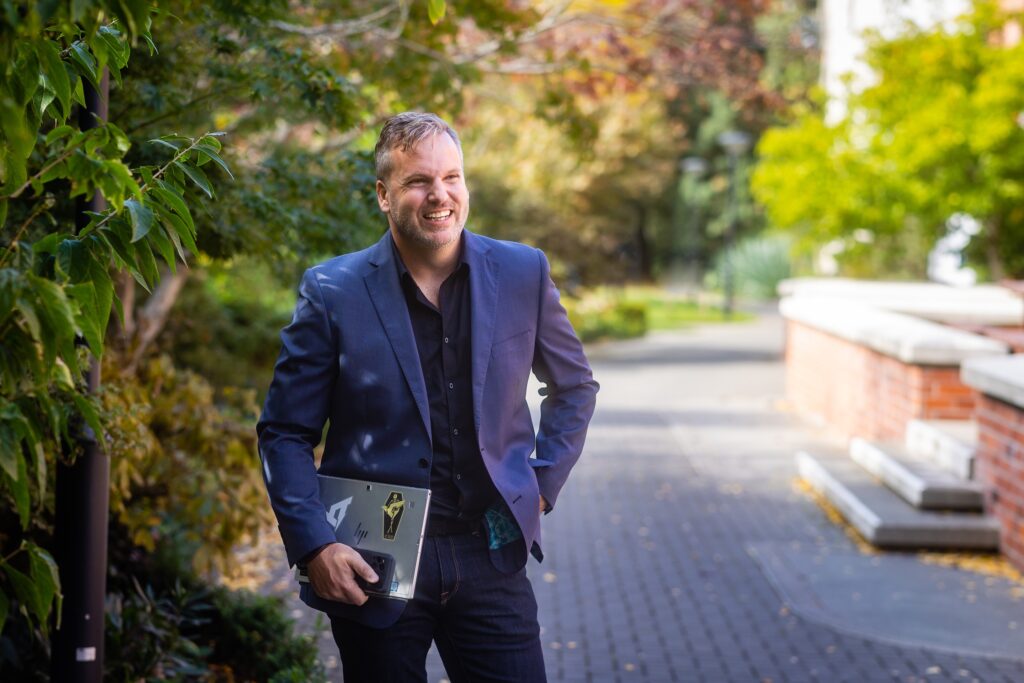
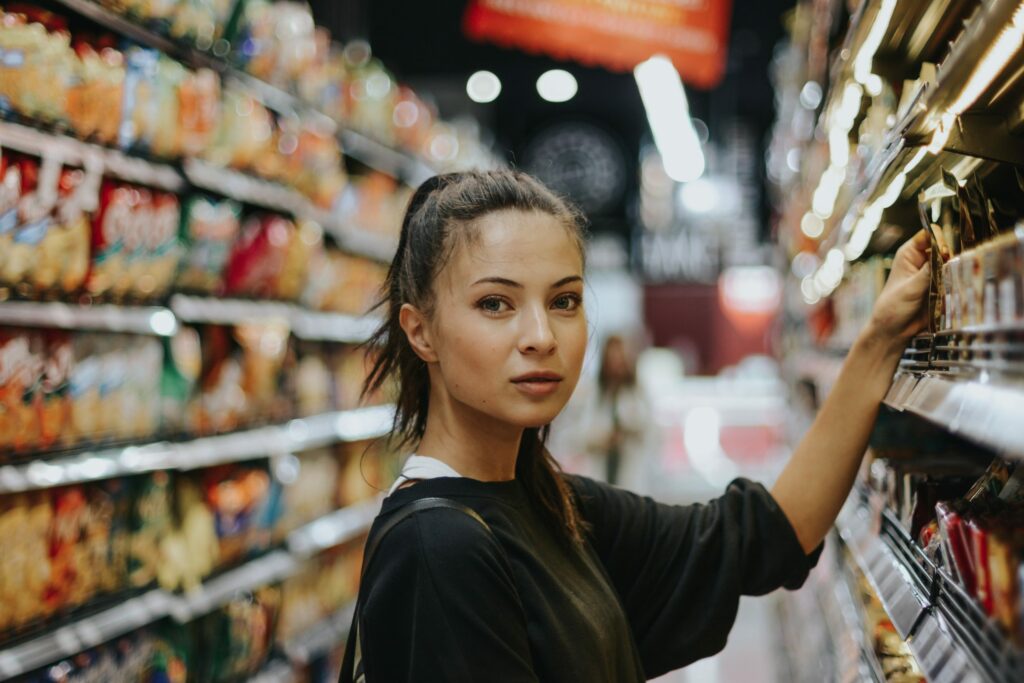
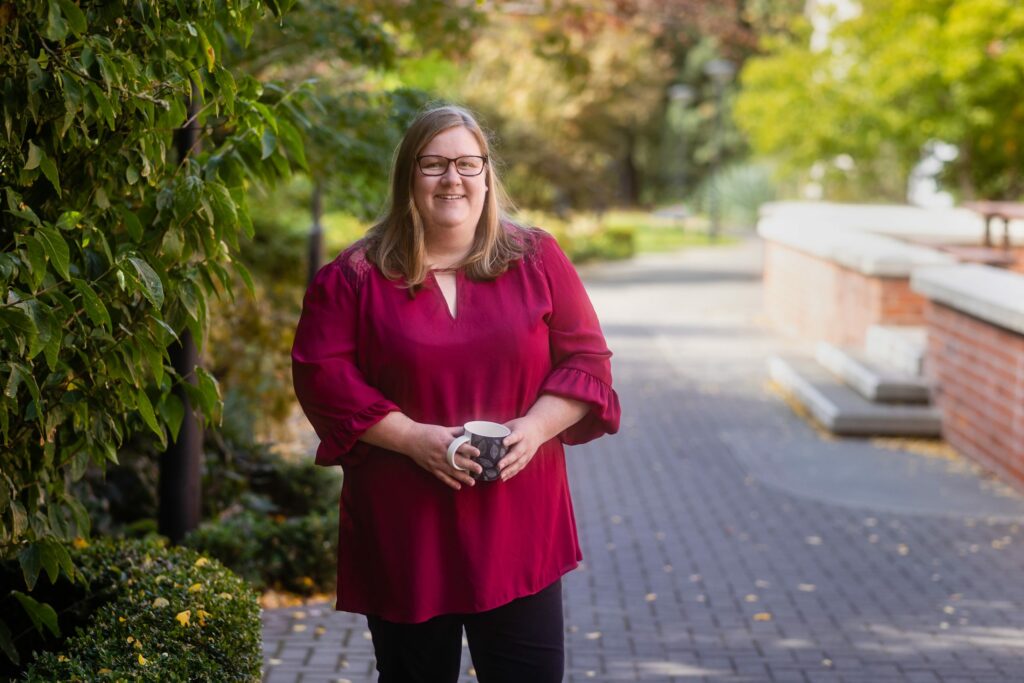
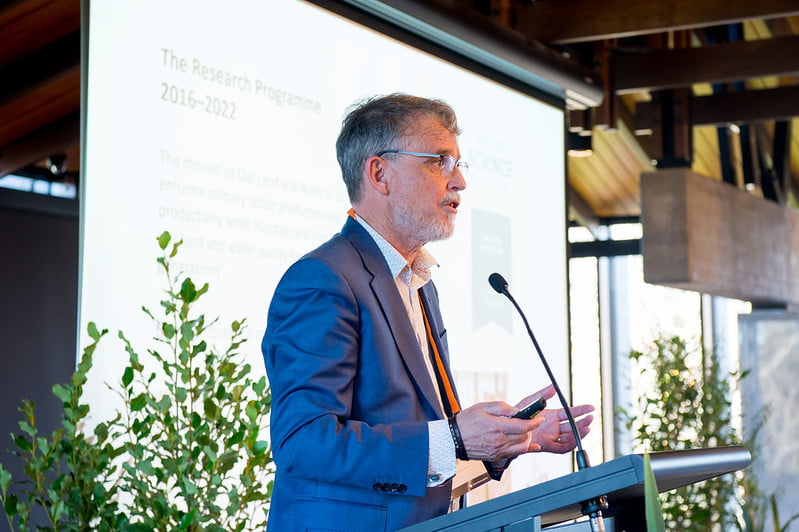
An instruction is not a plan: how to create value in the primary sector
Bill Kaye-Blake, principal economist with NZIER, reflects on 20 years of research into creating greater value in New Zealand’s primary sector. I’ve…